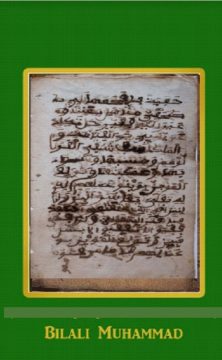
https://georgiahistory.com/education-outreach/historical-markers/hidden-histories/sapelo-island/
Location: Georgia Historical Society, 501 Whitaker Street Savannah, GA 31401
Bilali (Ben Ali) Muhammad 1770s – 1857
“In 1803, Bilali Belali (Ben Ali) Muhammad and his family arrived in Georgia on Sapelo Island. Bilali Muhammad was a Fula from Timbo Futa-Jallon in present day Guinea-Conakry. By 1806, he became the plantation manager for Thomas Spalding, a prominent Georgian master. Bilali “Ben Ali” was the leader of one of America’s earliest known Muslim communities. While enslaved, Bilali was the community leader and Imam of at least 80 men on Sapelo Island. During the War of 1812, he told his slave master that he had 80 men of the true faith to help defend the land against the British. Bilali was known for regularly wearing his fez, a long coat, praying five times a day facing the east, fasting during the month of Ramadan, and celebrating the two holidays when they came. Bilali was buried with his Qur’an and prayer rug. In 1829 Bilali wrote a thirteen-page book in Arabic called the “Ben Ali Diary,” about some of the laws of Islam and Islamic living. The book is currently housed at the University of Georgia in Athens. Bilali and his wife Phoebe had twelve sons and seven daughters. One of his sons is reported to be the “Aaron” of the author Joel Chandler Harris’ works, Uncle Remus and Br’er Rabbit stories. Bilali daughters’ names were Margaret, Hester, Charlotte, Fatima, Yoruba, Medina, and Bint. All of Bilali daughters but Bint could speak English, French, Fula, Gullah, and Arabic. Bilali was well educated in Islamic law.” http://www.muslimsinamerica.org/1800-s.html
Resources
Austen, Allan. African Muslims in Antebellum America. Routledge, 2011.
“Bilali Muhammad.” Muslims in Early Georgia: Introduction. College of Coastal Georgia Library. Accessed, 12/6/19.
Diouf, Sylviane. Servants of Allah, African Muslims Enslaved in the Americas. New York University, 1998.
“1800s.” Collections and Stories of American Muslims, Inc. America’s Islamic Heritage Museum. Accessed 12/5/19.
Fraser-Rahim, Mohammad. “Enslaved and Freed African Men: Spiritual Wayfarers in the South and the Low Country.” Low Country Digital History Initiative. Accessed 12/5/19.
Martin, B.G. Sapelo Island’s Arabic Document “The Bilali Diary” in Context.The Georgia Historical Quarterly Vol. 78, No. 3 (Fall 1994), pp. 589-601.
Turner, Richard. Islam in the African American Experience. Indiana University Press, 2003.
Photos:
